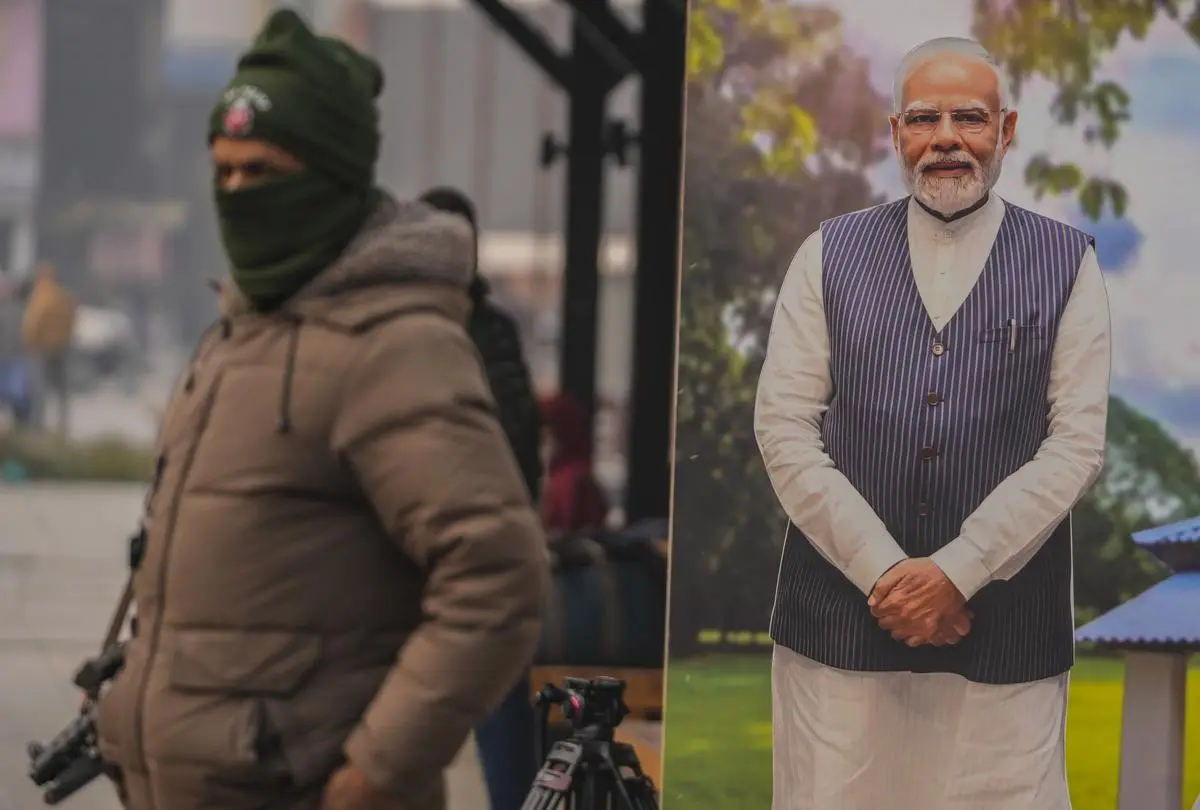Supreme Courtroom’s Kashmir ruling upholds Hindu majoritarian pleasure and prejudice
Allow us to ask ourselves a query: Simply how many individuals anticipated the Supreme Courtroom to reverse the Centre’s actions of August 5, 2019, in Jammu and Kashmir, when it revoked the undivided State’s semi-autonomous standing with a Presidential order, whereas holding its inhabitants captive in their very own homes, and precluding any type of dissent with the spectacle of armoured automobiles parked in every single place? Few. Maybe, none.
It isn’t that the petitioners had a weak case. Nor was everybody who thought that the petitioners’ makes an attempt can be futile versed with the legislation. But, if one might foretell what was coming, it was the end result of a widespread notion that in modern India the chief’s uneven, rising affect has made it resistant to even establishments that have been envisaged with the specific goal of regulating its energy. There’s a notion right this moment that the chief’s political decree, significantly those which include the trimmings of upholding the nationwide curiosity, is to not be hindered, not even by the opposite pillars of democracy.
With out including credence to such perceptions, or questioning the sagacity of the apex courtroom vis-a-vis the petitions difficult Jammu and Kashmir’s altered standing, the truth that such a notion exists is deeply regarding. The Supreme Courtroom’s lack of a place on essential elements of federalism, when it delivered its verdict on December 11, did little to annihilate them.
Additionally Learn | Supreme Courtroom’s Article 370 verdict: Authorized victory for Centre, however lengthy street to reconciliation stays
One of many focal factors of controversy in New Delhi’s August 2019 measure in Jammu and Kashmir was whether or not, or not, when a State is below President’s rule, the concurrence of a President-appointed Governor may be considered a sound substitute for the concurrence of an elected Legislative Meeting. It’s pertinent to say that the proviso below Article 3 of the Structure states that the President shall refer the Invoice for reorganisation of any State to the legislature of the involved State to elicit its opinion.
The Supreme Courtroom verdict has left each Indian State weak to comparable experimentations, whereby New Delhi can kind new States or alter current ones within the absence of an elected authorities, which primarily means with out a mandate from the folks. This has the potential to profoundly impression India’s federal construction.
Courtroom evades key questions on Article 370 and statehood
The Supreme Courtroom evading the examination of the deserves of downgrading the State of Jammu and Kashmir into two Union Territories, on the bottom that the Solicitor Normal has promised the return of statehood, was additionally not a improvement folks dedicated to democracy and federal autonomy enthusiastically awaited.
Interactions with a cross-section of political leaders in Srinagar give one the sense that they count on New Delhi to resolve on the query of statehood solely after the Meeting election. The BJP’s lack of ability to clarify the denial of statehood to Jammu and Kashmir and, on the identical time, its reluctance to revive it, upholds that remark. It additionally provokes the inference that what it intends to do is restore statehood if it wins Jammu and Kashmir, else bide time indefinitely.
The Supreme Courtroom’s path to the Election Fee to carry polls in Jammu and Kashmir on the earliest, not later than September 30, 2024, invariably provides it a protracted rope, with out having to clarify the inordinate delay witnessed already. The frequent chorus in Kashmir is that the BJP, having sensed imminent defeat for itself and its alleged proxies within the Kashmir valley, is loath to Jammu and Kashmir going to the hustings. The underlying concern is {that a} switch of energy to Srinagar-headquartered events would demolish the iron-fist bureaucratic equipment it has erected, one which undermines civil liberties to create and maintain a tradition of acquiescence.
A policeman stands guard close to a cutout portrait of Prime Minister Narendra Modi displayed on the essential market in Srinagar on December 11.
| Photograph Credit score:
Mukhtar Khan/AP
The questions that fester in folks’s minds are: Why is a protracted rope wanted? Is that this to permit time for the BJP to organise a extra outfitted election equipment, or assemble a formidable social coalition by pursuit of community-targeted welfarism, or to easily assist its perceived ploys to splinter mainstream Kashmiri events, significantly the Nationwide Convention, which is extensively anticipated to brush the Kashmir valley?
Additionally Learn | Why the maths just isn’t understanding for the BJP in Jammu and Kashmir
But, exterior Kashmir, there’s wide-scale approval of the Supreme Courtroom judgement. It stems from the fixed feeding of an aspiration for a Hindu hegemonic construction, the place minorities should stay as minorities, with out the power or standing to articulate community-specific disadvantages, and with out the company to affect the politics of the nation. Quiz a random Hindi heartlander on Article 370, and pat comes the reply: Why ought to Kashmir have a particular standing in any respect?
Jammu and Kashmir’s former Chief Minister Mehbooba Mufti just lately addressed that conundrum at a media conclave in New Delhi. “The entire nation appears to conveniently neglect or ignore the truth that Jammu and Kashmir, a Muslim majority State, went in opposition to the tide by selecting a democratic, secular India to a spiritual Pakistan. It was an distinctive resolution made with the commitments/ensures from the then Authorities of India to offer us sure safeguards within the type of particular standing to guard our distinctive identification.”
Concern of militancy and actuality of focused killings
The opposite dominant viewpoint is that Article 370 spawned terrorism and after its abrogation terror actions have abated. This can be a specious argument that 24×7 information cycles on TV flow into to amplify the ruling occasion’s fear-mongering and broaden its attraction to anxious voters. Militancy in Kashmir erupted in 1990, many years after the inception of Article 370, and even after it was stripped off in August 2019, there isn’t a information giving efficiency to the argument that militancy is on the wane. If something, it has percolated to Rajouri and Poonch. If something, it has acquired a nefarious, harder-to-prevent dimension of focused killings.
Think about this: In 2020, regardless of a pandemic, 244 terror assaults occurred killing 62 troopers and 37 civilians. In 2021, 42 troopers and 41 civilians have been killed in 229 terror assaults. In 2022, 31 safety personnel have been killed in 242 terror assaults.
Additionally Learn | Torture, custodial killings proceed to hang-out lives in Jammu and Kashmir
Justice Kaul, who directed the organising of an “neutral truth-and-reconciliation fee” to analyze circumstances of human rights violations since 1980, famous that the aim of Article 370 was to slowly deliver Jammu and Kashmir on par with different Indian States. Have we? The aim of integration is a far-away imaginative and prescient at a time when the Modi Authorities is seen strengthening its dedication to inserting the social and political pursuits of the Hindus on the high.
Folks in Kashmir have legitimate cynicism: How can there be integration within the face of on a regular basis disregard for primary human rights? When all democratic platforms to precise disagreement with the powers-that-be stay suspended? When journalists are booked below anti-terror legal guidelines? When authorities workers are terminated over mere suspicion of supporting separatist thought? When college students from different States have their Kashmiri counterparts arrested below draconian legal guidelines for allegedly cheering for a profitable cricket workforce?
None of this facilitates integration. It begets a sense of otherisation. It begets an surroundings of suppressed, collective anger. It begets a sense of vulnerability to modern nationalists’ basest impulses.





